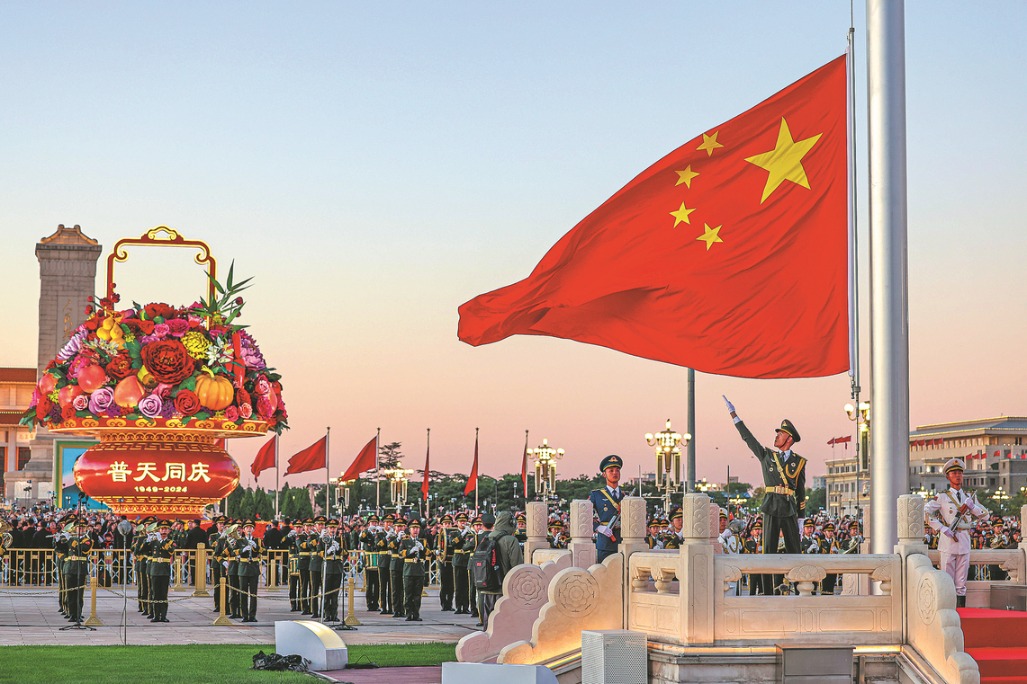DPP must accept it will not be able to impede the inevitable trend of national reunification: China Daily editorial


Immediately following his election win, Lai Ching-te of Taiwan's Democratic Progressive Party said maintaining cross-Strait peace and stability would be his mission as Taiwan's new leader. He also pledged to preserve the status quo, and seek to "replace confrontation with dialogue".
How the incoming Lai team behaves and how Washington handles the sensitive relations with the island will to a great extent determine whether peace can be maintained across the Taiwan Strait.
The results of the island's election will not change the basic landscape and development trend of cross-Strait relations, and will not impede the inevitable trend of China's reunification. The Chinese mainland will work with relevant political parties, groups and people from various sectors in Taiwan to boost cross-Strait exchanges and cooperation, enhance integrated development, jointly promote Chinese culture, and advance the peaceful development of cross-Strait relations as well as the cause of national reunification.
Those that sent their congratulatory messages to Lai should be reminded that the Taiwan question is China's internal affair. Whatever changes take place in Taiwan, the basic fact that there is only one China in the world and Taiwan is part of China will not change; the Chinese government's position of upholding the one-China principle and opposing "Taiwan independence" separatism, "two Chinas" and "one China, one Taiwan" will not change; and the international community's prevailing consensus on upholding the one-China principle and long-standing and overwhelming adherence to this principle will not change.
As a Foreign Ministry spokesperson reiterated in a statement on the result of the election, the one-China principle is the solid anchor for peace and stability in the Taiwan Strait. Beijing believes that the international community will continue to adhere to the one-China principle, and understand and support the Chinese people's just cause of opposing "Taiwan independence" separatist activities and striving to achieve national reunification.
The biggest uncertainty in the relations concerning Taiwan, therefore, lies in how the island's new leadership and the US approach them. How Lai balances his own inclination for "independence" and the island's need for cross-Strait peace and stability will test his political wisdom as well as credibility.
"We do not support independence", said US President Joe Biden, responding to a request for comment on the election outcomes. US Secretary of State Antony Blinken reiterated the US' commitment to "maintaining cross-Strait peace and stability" and "long-standing unofficial relationship, consistent with the US' one-China policy". Their remarks align with the ongoing efforts of China and the US to prevent the China hawks in Washington from using Taiwan as a tool to provoke Beijing. This necessitates the US not having official exchanges with the island and avoiding sending encouraging messages to the secessionists on the island.
The reunification of China has always been the dream of people on both sides of the Taiwan Strait, and this is the firm and clear policy of the Chinese government and strong aspiration of the Chinese people. If Lai truly wants to replace confrontation with dialogue, then this is the reality that must be faced.
































